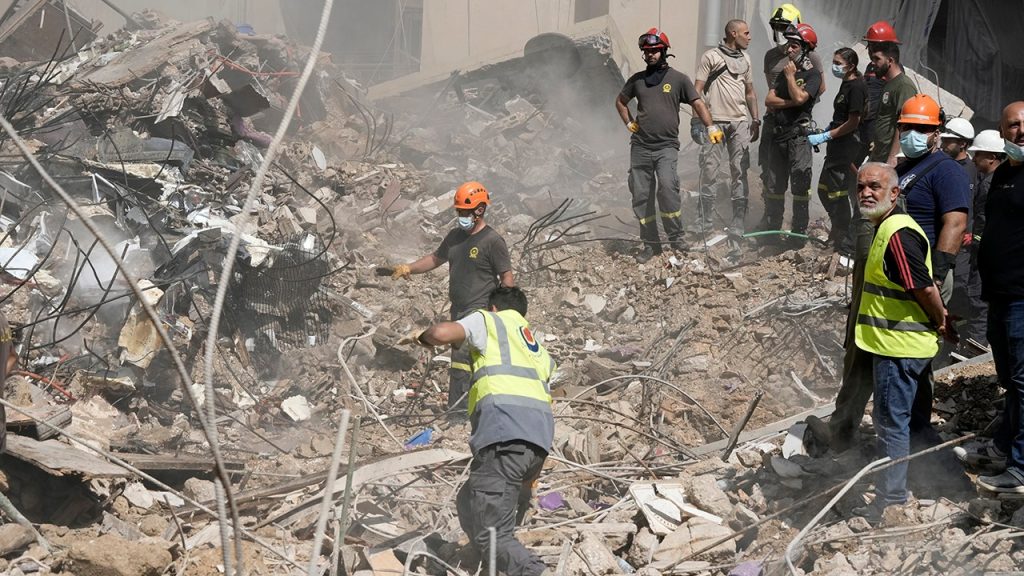On Saturday, the Lebanese terrorist group Hezbollah announced that one of its top commanders, Ahmed Wahbi, was killed in an Israeli airstrike on Beirut. Wahbi, who oversaw the military operations of Hezbollah’s Radwan special forces unit until early 2024, was among the 16 members of the group who were eliminated in the strike. The Israel Defense Forces confirmed that they were carrying out more airstrikes targeting Hezbollah in Lebanon following the initial strike. Another commander of the Radwan special forces, Ibrahim Aqil, was also killed in the Friday airstrike, as confirmed by the U.S. State Department. Aqil was a member of Hezbollah’s highest military body, the Jihad Council, and had ties to the Islamic Jihad Organization responsible for bombings in Beirut in the 1980s.
Hezbollah released a statement describing Aqil as one of its top leaders who was killed in a treacherous Israeli assassination. Israel confirmed that Aqil was eliminated alongside other senior terrorists in Hezbollah’s Radwan Forces. The overall death toll from the airstrike was 31, including seven women and three children, according to Lebanon’s health minister. The strike destroyed an eight-story building with 16 apartments and damaged an adjacent building where a meeting of Hezbollah officials was taking place. Health Minister Firass Abiad reported 68 people wounded, with 15 remaining in the hospital, and search and rescue operations were ongoing with the number of casualties expected to rise. Minister of Public Works and Transport Ali Hamie stated that 23 people were still missing.
The airstrike on Beirut resulted in the deaths of several Hezbollah members, including top commanders, in addition to causing significant civilian casualties. The IDF’s targeting of Hezbollah in Lebanon has intensified following the initial strike, leading to further confrontations between the two groups. Hezbollah has condemned the Israeli airstrikes as treacherous assassinations, indicating escalating tensions in the region. The casualties from the airstrikes have led to heightened concerns about the impact of the conflict on civilian populations in Lebanon. The ongoing violence threatens to exacerbate the already volatile situation in the Middle East.
The airstrikes in Beirut have raised international alarm, with the United States and other countries closely monitoring the situation. The involvement of Hezbollah, a designated terrorist group, and Israeli military strikes have sparked fears of a wider conflict in the region. The killing of senior Hezbollah commanders indicates a significant escalation in hostilities between Israel and the militant group. The impact of the strikes on civilian infrastructure and casualties underscores the devastating consequences of the conflict. The international community has called for de-escalation and dialogue to avoid further bloodshed and destabilization in the region.
The targeted Israeli airstrikes on Hezbollah in Lebanon have heightened tensions between the two adversaries, leading to casualties on both sides. The deaths of top commanders within Hezbollah have dealt a blow to the group’s leadership and operational capabilities. The Israeli military’s continued targeting of Hezbollah poses a significant challenge to the militant group’s activities. The civilian casualties resulting from the airstrikes underscore the human cost of the conflict and the need for a diplomatic resolution to prevent further violence. The situation in the Middle East remains precarious, with the potential for further escalation if the conflict is not resolved through peaceful means.


